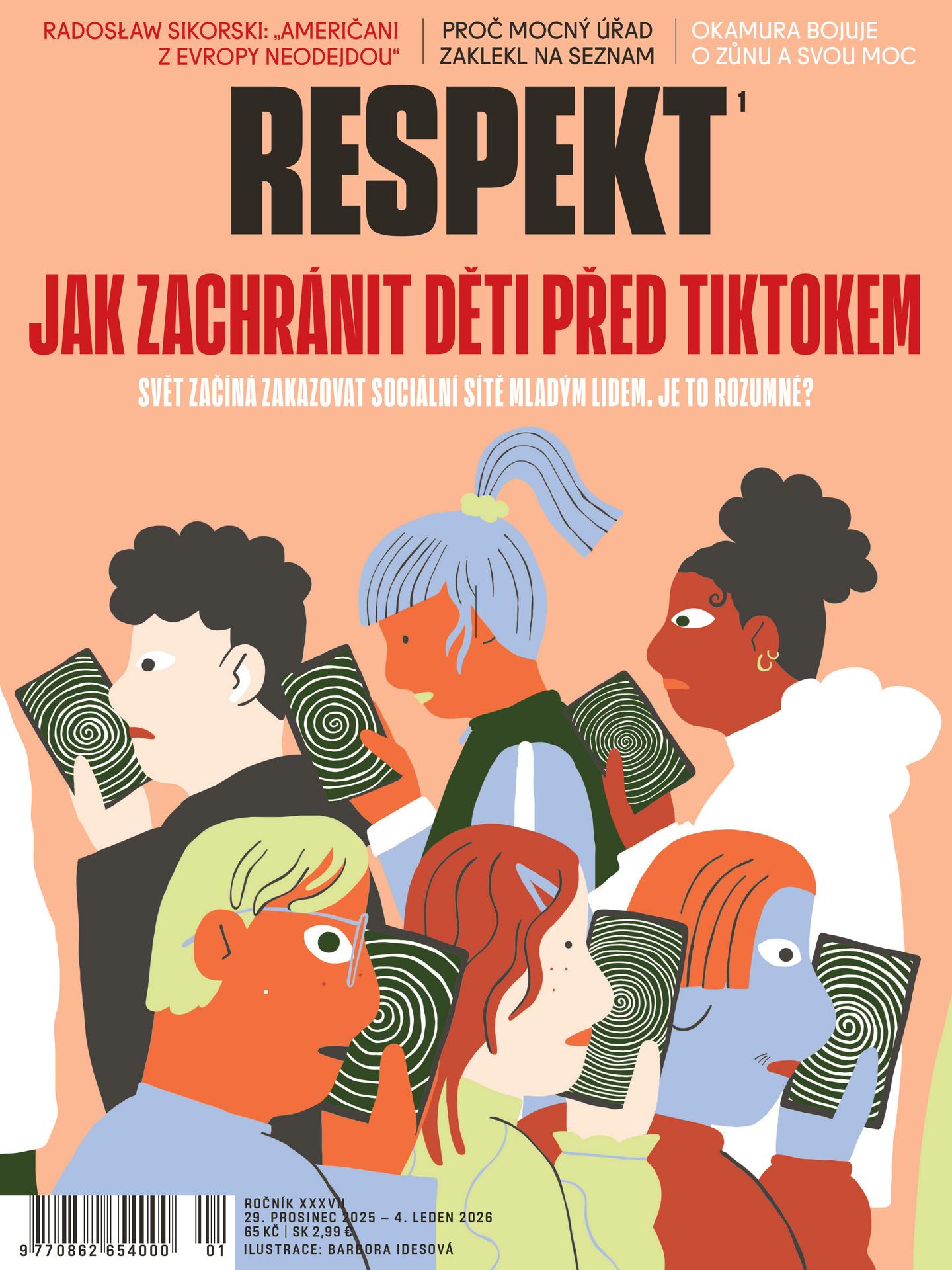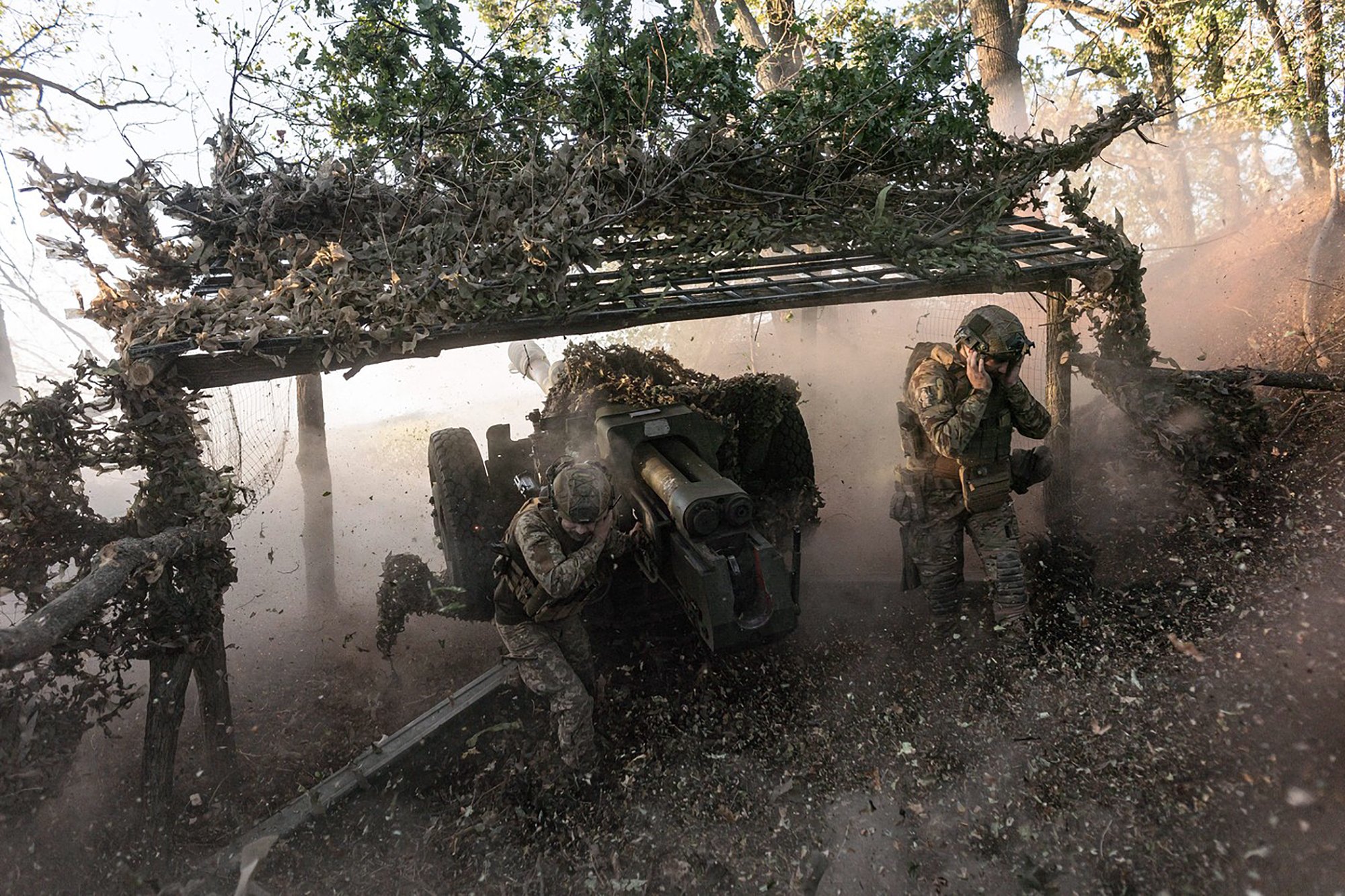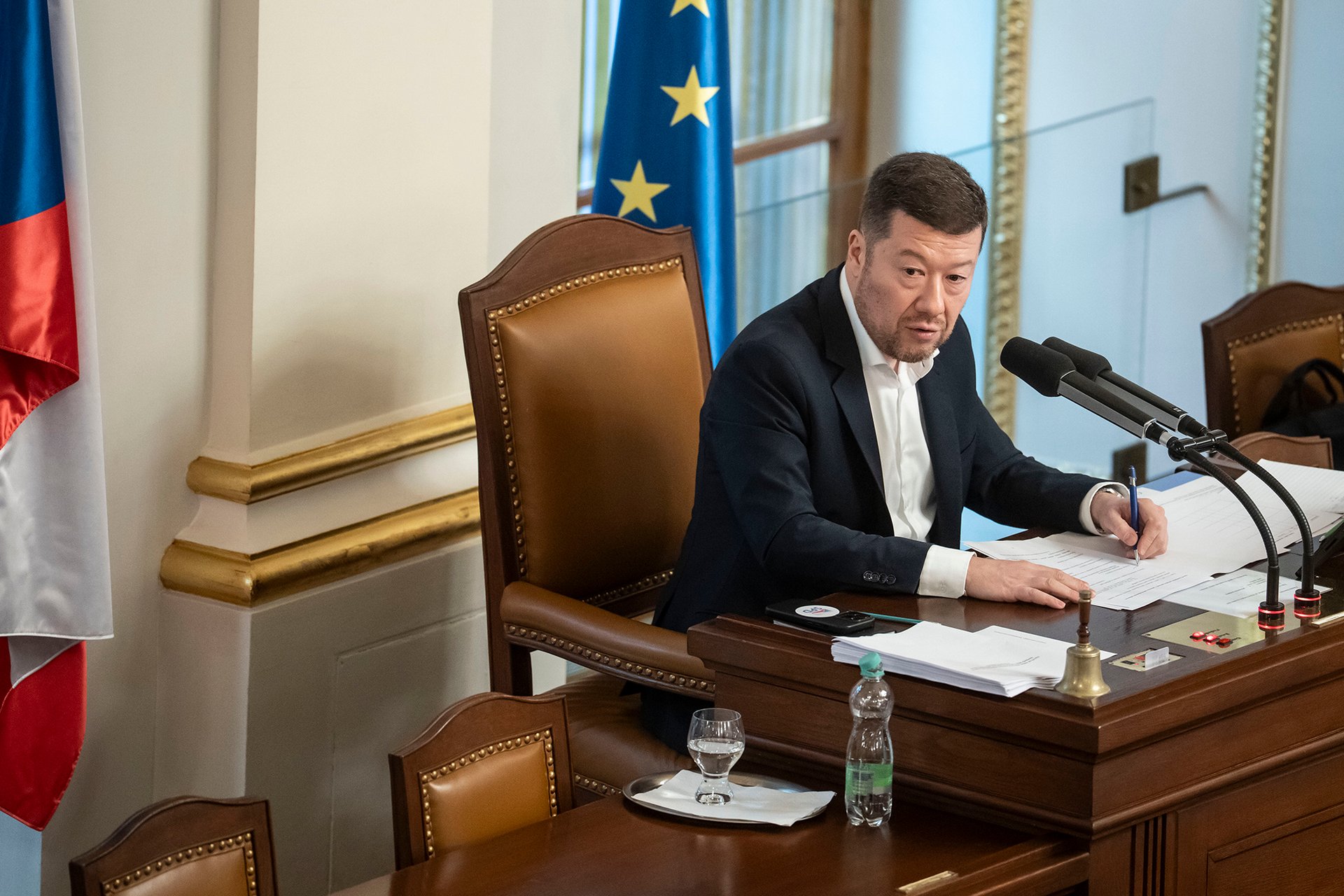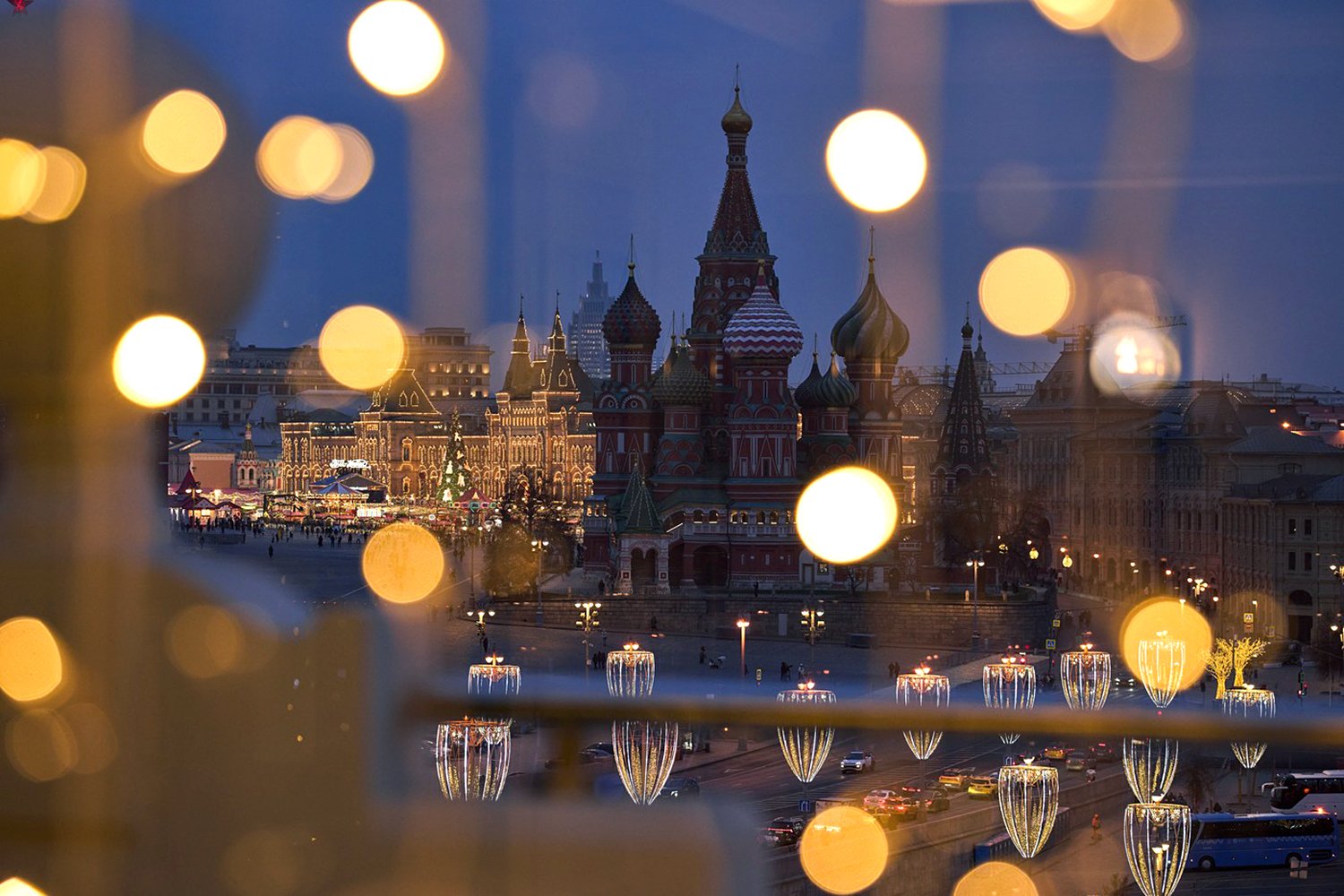Deep Roots
Moravian winemakers look for the path towards “big” wine
Translated by Lani Seelinger
At first glance, Zdeněk Vykoukal’s instructions seem simple. No complicated chemistry, no breeding, only minimal intervention. “You just let it grow, as nature commands,” says the long-time winemaker, walking the narrow paths of his vineyard. But at the same time, Mr. Vykoukal has a daring plan. They say that over the last 20 years, during which the vineyards have passed from the hands of the United Agricultural Cooperative back to private growers, almost everyone in Moravia has learned how to make high-quality wine. Now it’s easy to buy the results of the Moravian winemakers’ work anywhere in the Czech Republic, and the days when it was often unappetizing and watery are long gone.
Mr. Vykoukal, however, wants to go further – he aims to make fine wines at a worldwide level without modern equipment, only thanks to methods that have mostly fallen into oblivion. The Moravian winemaker is convinced that this makes sense. “The path is leading here, towards a real uniqueness and exceptionality in our wines,” he explains. This originality is actually the last move that separates the local output from its celebrated counterparts from France, Italy, and lately also places like Argentina, Chile, or South Africa. For now, the fame of Moravian wine has not gone beyond the borders of the Czech Republic. However, domestic winemakers think that if they can succeed in emphasizing what is typical and unique about their vineyards, they could make a product that would make a real worldwide splash and, most importantly, have a world-class taste.


The Strength of Complexity
Under the name of Austerlitz, Mr. Vykoukal has apparently already scored highly a few times in foreign countries, most recently with acquaintances in St. Petersburg, Russia. “The name is a famous battle that people remember from school,” says Mr. Vykoukal, smiling. If people associated Austerlitz—or Slavkov—with wine and not just with the Napoleonic Wars, it would really be his dream come true. “The soil here offers something extraordinary. Everywhere around here was once a sea a long time ago, and it shows. Three times as much calcium and magnesium, really high-quality bedrock,” says a pleased Mr. Vykoukal, who even wrote a thesis at Mendel University in Brno about the characteristics of the region and, primarily, about how the unique traces that make up the soil combined with the climate end up in the grapes.
Although Moravia falls into a colder zone of worldwide winemaking, the soil there offers winemakers a chance at success. “It’s unique. It doesn’t necessarily have to be better than Italian or French wine, but it’s different,” explains Mr. Vykoukal, expanding on the subtle acidic tones that the aforementioned bedrock brings to his drinks.
Of course, it’s chiefly about the taste of the resulting product. “It wine, you have more than 1,000 individual substances. The whole science of it lies in trying to find exceptionally harmonic combinations between them,” says another Moravian winemaker and a living legend in his field, Miloš Michlovský, who grows and produces his wine in the Pálava Protected Landscape Area. “The real quality is less distinct aromatically, it’s complicated. Few people appreciate that the beauty is in the complexity,” says Mr. Michlovský over the bottles in his vineyard.
Mr. Michlovský agrees with his colleague Mr. Vykoukal that Moravian winemakers can strive for really “big wine.” The connoisseurs know that its taste doesn’t evaporate over the course of years, but on the contrary it constantly transforms, takes on new and unexpected qualities, and matures.
What winemakers don’t completely agree on is how to mature it to the desired result. Mr. Michlovský, a university lecturer and the author of a textbook on tasting, places his bets on technological progress and the knowledge that modern winemaking science offers. Mr. Vykoukal, on the other hand, is turning the other way, and he’s not alone.
Joy of the Spirit
“We, the authenticists, recognize this as hearkening back to our predecessors, who have been farming this land for more than a thousand years, and among other things, growing wine grapes and making wine for the joy of the spirit or the celebration of God,” reads the opening sentence of the “charter” that eight winemakers from Velké Pavlovice wrote under the leadership of Mr. Vykoukal.
The authenticists’ fundamental rule says that the whole approach to a vineyard should honor the principles of ecological agriculture, so all herbicides and the majority of other chemicals are off-limits, and protections against diseases can be used only with narrowly defined “organic” means. The authenticists reject synthetic fertilizers, and another important principle is, for example, picking grapes purely by hand. “We crush the grapes barefoot in the cellars,” says Richard Stávek, one of the adherents of the movement, explaining how far the attempt for the maximal return to authentic production goes.
Even wine maturation in the cellar has strict rules. The juice squeezed from the grapes ferments spontaneously, only because the organisms that are originally present or that naturally live in the walls of the wine cellar. “Yeast cells are the most important things. Different yeast cells create completely different characteristics,” says Mr. Vykoukal, explaining that in ordinary “industrial” production, they usually use the universal yeast cells from global producers, which makes the same variety taste identical, whether the grapes were grown in Chile, Burgundy, or, for example, just outside of Brno.
Additionally, in order to achieve an interesting taste, today the “mainstream” winemakers use the most varied food processing substances or fake substitutes of traditional methods, which the authenticists see as just incompetence or laziness towards creating the desired aroma through natural pathways. “This is really a lot about a relationship to nature. Lots of us farm on eco-farms,” says Vykoukal. “In short, this traditional approach entertains us.”
And to complete the list, it’s completely impossible to omit even mercantile motivation – signing up for extraordinarily demanding methods time-wise, where something could go awry every moment without chemicals, can actually work as a necessary marketing asset for pushing oneself through amongst growing winemaking competition.
What about the medals?
You’ll still only stumble upon the autenticists’ products with some difficulty, but Mr. Michlovský is already celebrating successes – he’s collecting awards at international competitions, and the shelves in his office are getting piled up with wicker baskets full of plaques, medals, and all sorts of glasses. It was his Pálava that to a large extent became a demonstration of how a wager on a regional name can really pay off on the path to world-class wine. But that’s not it, and the successful winemaker waves off the medals by saying that although young, distinctive wines celebrate successes that they gain thanks to their distinctiveness, their magic evaporates after a few years. On the other hand, actual “big wine” doesn’t have to capture attention at the competitions, but after a few years it far surpasses the medalists.
Mr. Michlovský only shakes his head at the fact that this kind of value still hasn’t arisen in the Czech Republic, and that the journey to international recognition would take this peculiar path. “Returning completely to historical methods doesn’t make sense. Keeping originality, for sure. But it doesn’t have to be at any price,” says the winemaker. “It would be like if a doctor refused all of modern medicine.”
As an example of the true path, he presents the French practice, which looks for its roots not in the past, but literally deep in the soil. According to statistics from the winemakers’ association, one actually finds about 3,000 bushes of grape vines on the average hectare of a Moravian vineyard. In the renowned winegrowing regions of France or Italy it’s 15,000, or even a lot more than 20,000 bushes.
“One of the mysteries of quality lies right there,” explains Mr. Michlovský. “Bushes planted so densely like that grow up only minimally, much less in total than the vines growing alone.” The reality that roots crowded in next to each other grow deep into the ground to the only remaining space, however, also brings about a unique effect on the quality, when they pull out otherwise unattainable substances from the deepest strata. Therefore the winemaker’s association also agreed that a goal in the coming years would be to reorganize a substantial section of the Moravian vineyards such that the plants would be almost twice as dense as they are now.
A Wind from Brussels
It’s certain that for now, even the authenticists aren’t clear about the search for true originality. “Can you let wine ferment in metal vats? Or should you keep it in the original wooden casks, ideally made of wood from around here?” says Richard Stávek, a founding member of his association, describing one of their current debates. He himself is gambling on “fundamentalism,” and he keeps his wine in casks made from acacia trees that grew less than a kilometer from the vineyard.
According to the experts, on the other hand, it’s debates like this that could put a necessary “professional debate” in motion amongst the winemakers and could help them towards the dreamed-of international appreciation. Regarding the authenticists, though, there is a European trend that is playing into their hands; the European Union is pushing not only Moravian winemakers, but also practically all European winemakers, towards ecological production methods by means of grants.
Článek Hluboké kořeny vyšel v Respektu 33/2013
Pokud jste v článku našli chybu, napište nám prosím na [email protected].










